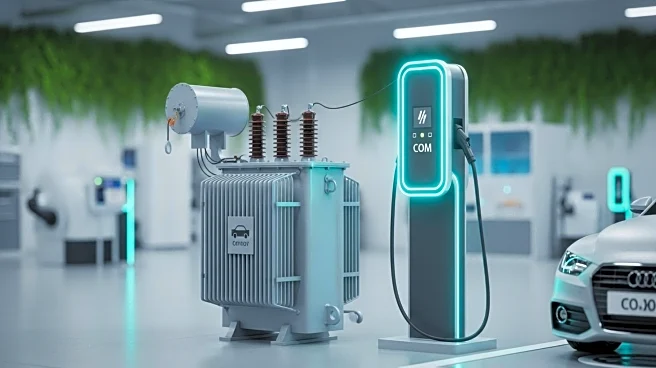What's Happening?
Major companies like ABB, GE, and GM are backing electrification as a key strategy to reduce carbon emissions in the manufacturing sector. According to the International Energy Agency (IEA), electrification is crucial for achieving net zero emissions by 2050, in line with the Paris Agreement. The IEA highlights that significant emission reductions can be achieved through the adoption of electric transport and heat pumps in industrial operations. The pace of electrification in manufacturing and other sectors needs to double by 2030 to meet these targets.
Why It's Important?
Electrification represents a transformative shift in how industries operate, with the potential to significantly lower carbon footprints. This move is critical for meeting international climate goals and reducing the environmental impact of manufacturing. Companies investing in electrification can gain a competitive edge by aligning with sustainability trends and regulatory requirements. The transition also opens opportunities for innovation and development in electric technologies, potentially leading to economic growth and job creation in the green energy sector.
What's Next?
As the push for electrification intensifies, industries are expected to increase investments in electric technologies and infrastructure. This may lead to policy changes and incentives from governments to support the transition. Companies will likely focus on developing new products and services that align with electrification goals, fostering collaboration across sectors to accelerate progress towards net zero emissions.










